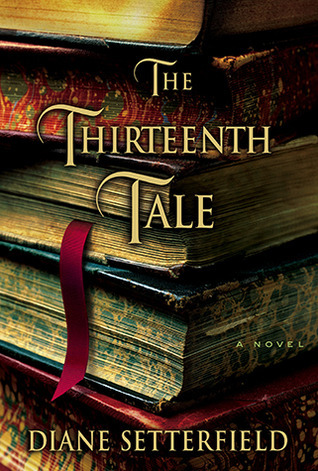- The Good: Moody storytelling and creepy twins
- The Bad: Yearning melodrama that doesn’t always work
- The Literary: A book that loves classic Victorian literature
Famous and prolific author Vida Winter crafted numerous outlandish life histories for herself throughout her career, but now, old and ailing, she at last wants to tell the truth of her life. She summons an amateur biographer, Margaret Lea, who favors reading and running a bookshop over writing, who has a secret of her own that parallels Miss Winters.
This book won the ALA Alex Award and the Quill Award back in 2007, and it’s on several best-of lists for people who love books about books—plus the audiobook is also awarded.
Margaret travels to the remote moors where Miss Winter lives to hear her story. Within the once grand estate, layers of carpets and tapestries mute the rooms. On a strict schedule Margaret visits Miss Winter, listens, asks no questions, and returns to her room to write her notes. The plot is slow, gentle, and mysterious. The chapters switch back and forth between the two protagonists, in the present day and in their their pasts, but Margaret’s story is much less compelling.
The story is a love letter to books and libraries, with multiple references to Jane Eyre, Wuthering Heights, The Woman in White, Sherlock Holmes, and more, all of which underscore the themes of the novel. With Victorian sensibilities and gothic yearning, the story centers around the self-mutilating Angelfield family and household, including Isabelle, her brother, and Isabelle’s feral twins Adeline and Emmeline. It’s about identity, home, death, loss and isolation, the bond between siblings, and the mythology of twins.
For some reason, I thought this story was going to have more fantastical elements. Those it has are subtle and fit within the gothic genre, with ghosts and doppelgangers. I do enjoy that the line between mental health and the supernatural is thin. Plus the gothic elements of horror and suspense—the decaying old mansion and incestous family all tickle my literary fancy.
Miss Winter’s fans are desperate for the missing story in her only collection of short stories, which no matter the official title will be forever referred to as The Thirteenth Tale. I’m surprised that for all the discussion about how wonderful Miss Winter’s stories were, we’re never able to read them. Or in any case, they don’t play a role in the structure of the book or parallel her real life in any way. The denouement of Margaret’s book includes excerpts of the final short story, or Miss Winter’s Thirteenth Tale. It’s meant to be a sharp twist on Cinderella and the cherry on top of all her previous works, but I find it underwhelming.
If you’re prepared for modern Victorian novel that nods to the greats, you’ll enjoy this family drama.
“The other rooms were thick with the corpses of suffocated words: here in the library you could breathe. Instead of the fabric it was a room made of wood.”
